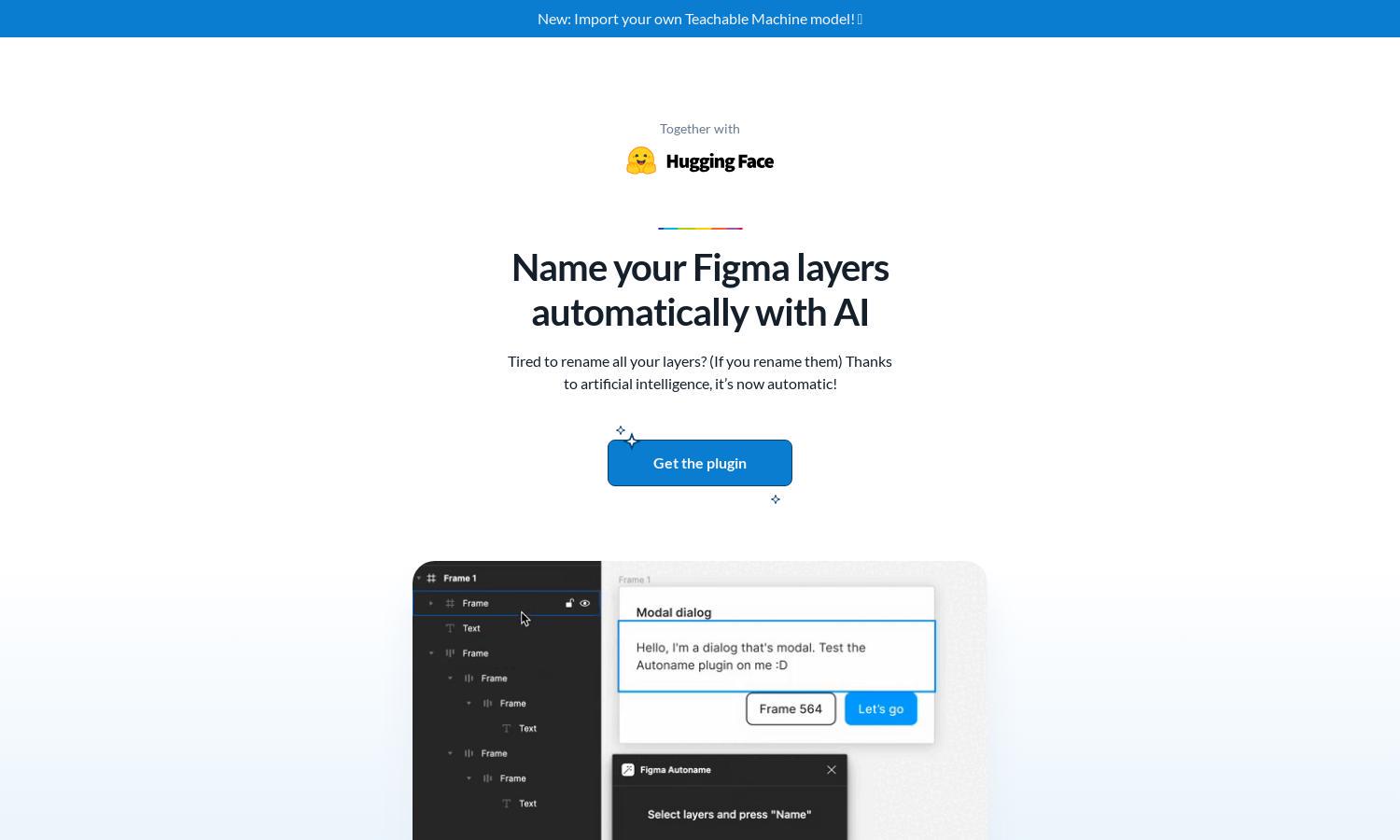Figma Autoname

About Figma Autoname
Figma Autoname streamlines the renaming process for designers by allowing users to rename Figma frames in one effortless click. By employing AI technology, Figma Autoname not only enhances productivity but also maintains the integrity of component names, making it an essential tool for design professionals.
Figma Autoname is available for free under the MIT License, providing users with all essential features at no cost. There are no subscription tiers, emphasizing its open-source nature. Users can contribute to the plugin's development while benefiting from its time-saving functionalities.
The user interface of Figma Autoname is designed for simplicity and efficiency, creating a seamless experience for designers. Its layout facilitates easy navigation, while user-friendly features augment productivity. Figma Autoname ensures that renaming frames is straightforward, appealing to both novice and experienced designers.
How Figma Autoname works
To use Figma Autoname, users simply install the plugin, access it within their Figma workspace, and click to rename all frames at once. The plugin integrates smoothly with Figma’s interface, allowing for quick access. With its AI capabilities, users can rename layers efficiently while ensuring component names are preserved.
Key Features for Figma Autoname
One-click renaming
Figma Autoname’s one-click renaming feature revolutionizes how designers manage their layers. By automating the renaming process, Figma Autoname allows users to focus on creativity while significantly speeding up their workflow, thus addressing a common challenge in design efficiency.
Component name protection
Figma Autoname intelligently detects and prevents the renaming of essential components and instances, ensuring that critical layer names remain intact. This unique feature enhances user confidence, knowing that important design elements stay unchanged while non-component layers are renamed rapidly.
Open source collaboration
Figma Autoname is a community-driven project, freely available under the MIT License. This open-source nature encourages collaboration and contribution, allowing users to both benefit from the tool and participate in its ongoing development, ultimately fostering a shared sense of innovation and improvement.








